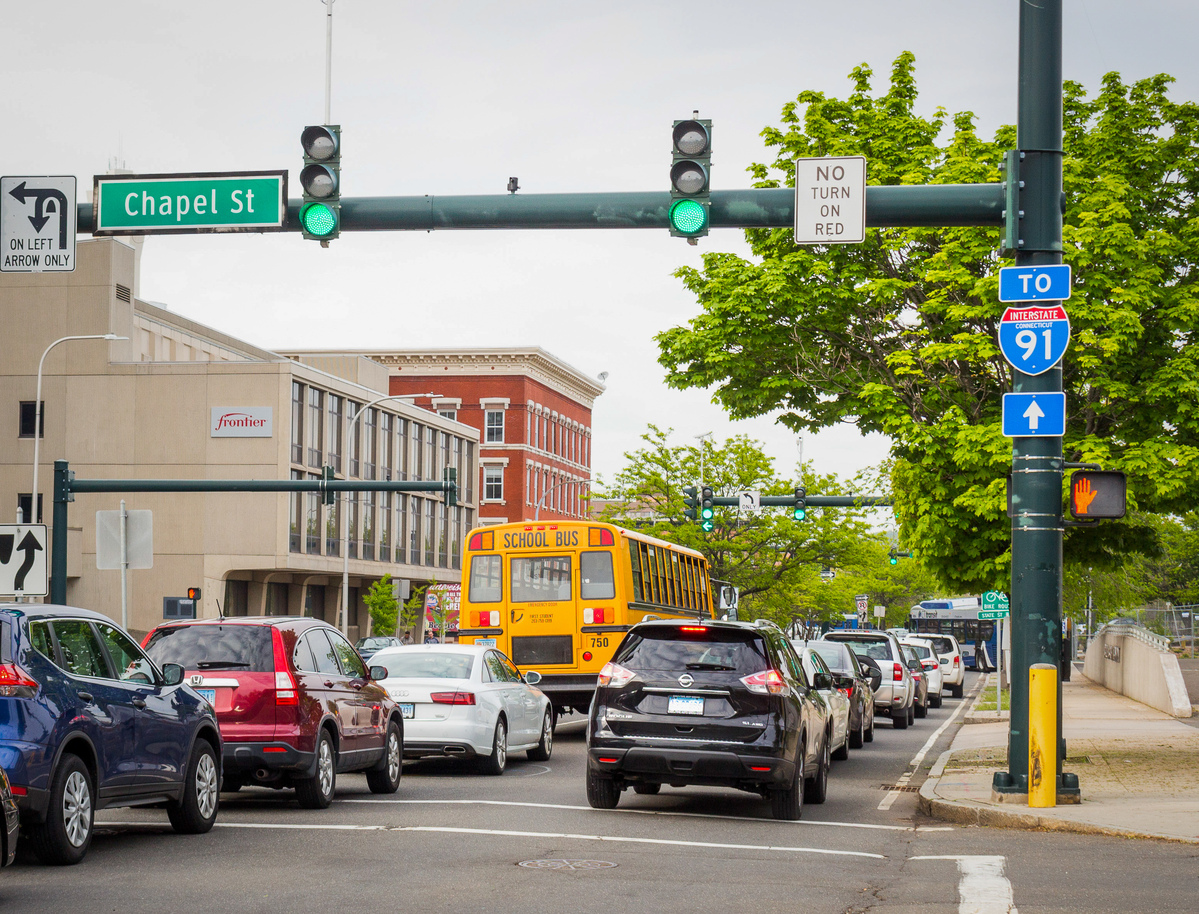Amidst staffing shortages, NHPS launches virtual after-school tutoring program for quarantined students
NHPS adapts a virtual after-school tutoring program for quarantined students due to limited number of teachers.

Yale Daily News
As Connecticut schools continue to adapt to the pandemic and associated teaching shortages, New Haven Public Schools has been trialing new virtual learning formats for quarantined students.
With NHPS reopening to in-person instruction from a previous hybrid model, it has implemented new after-school programs for quarantined students. Dina Natalino, supervisor of college and career pathways, is actively involved in the virtual programming for students K-8 and explained that when a portion of a class is quarantined, students are able to attend virtual tutoring sessions online to make up for the classes they missed.
“The highlight of [the program] is the fact that New Haven is offering services to families,” Natalino said.
At the end of each school day, teachers notify Natalino and Typhanie Jackson, director of student services, with a list of students who are in quarantine. The students are then linked with online tutors for after-school instruction. Natalino further explained that if a class is completely quarantined, teachers would have to go fully online during the school day. The virtual programming for quarantined students is part of the district’s longer-term interest in a virtual academy.
Teachers communicate the course material with the tutors to teach the quarantined students over a 10 day period. Justin Harmon, communications director for NHPS, said that each day of tutoring carries on for two hours after-school. If a student returns to school before those 10 days are over, they still have access to tutoring after-school. Quarantined students go without an instructor during the school day.
High school students undergo a similar process when quarantined, according to Paul Whyte ’93, instructional superintendent of high schools and alternate programs. With the help of instructional videos from teachers and online educational resources like Khan Academy, quarantined students will continue instruction from home. Whyte said that unlike the more individualized K-8 tutoring, quarantined high school students do not have tutors for all specific classes, but have tutors for more general subjects such as math and English.
Natalino added that while there are tutors to cover every grade level, positions at the K-8 level have yet to be filled as the tutoring program takes place after-school instead of during the day.
“Now we’re seeing that K-8 [schooling] is having difficulty selling their businesses as well,” Natalino said.
She noted that historically, specific courses have had teaching shortages, especially mathematics and world languages at high school levels. She said, in contrast, K-8 schooling usually always had an “abundance of applicants.”
Whyte echoed the shortage of teaching staff available.
“Staying fully staffed in the largest school district in the state is an ongoing challenge,” Whyte said.
Whyte added that the situation differs from the prior year, as last year’s hybrid format allowed all students to attend class during the day virtually. But with classes now only offered in-person, Whyte described the protocol for schooling for quarantined students as “not the best situation to make [instruction] work for everyone,” referring to the lack of teaching personnel.
While the Board of Education has considered asking retired teachers to volunteer with the after-school programming to address the teacher shortages, Natalino said that Yale student tutors are beginning to help out. Natalino said that Yale has “always been a really great partner to New Haven public schools,” citing Yale tutors who worked with small groups of students virtually last academic year and Yale’s REACH program, which provides college counseling to NHPS students.
Natalino hopes that the next step is to build up more teaching personnel to support quarantined students during the school day, as instruction only exists after-school.
“By working with the Yale tutors and working with retired teachers if necessary, then we [would] have more time during the day that supports kids as well,” Natalino said.
Natalino added that given the current situation, the tutoring program has been “pretty consistent” in the number of kids and families taking advantage of its services. She further said that there would be more help needed if COVID-19 cases were to increase.
Whyte elaborated on the plans for high school students mentioned by Jackson, revealing a credit recovery program. For students who have failed courses, a credit recovery program will be implemented in November. This program will be conducted virtually. He also mentioned that a full year-long virtual option for schooling must be offered in the 2022-23 academic year per state law. However, specifics of that long-term program have not been finalized.
The new after-school quarantine tutoring program was implemented last month.







